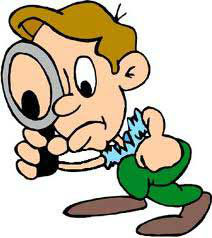Thanks to Congress's Incompetence, Milk Prices Are
Post# of 1903

Thanks to Congress's Incompetence, Milk Prices Are About to Double
By
Dec 28 2012, 3:27 PM ET 32
This is dumb. Astonishingly, breathtakingly dumb.
Thanks to Congress's failure to pass a new version of the farm bill, the last edition of which officially expired on September 30, American consumers are about to see the price of milk at the grocery store to skyrocket in the new year. It might even double to around $6 or $7 a gallon. That is, unless our elected officials defy their recent track record and manage to legislate a fix before January 1.
The media has predictably dubbed this debacle "the dairy cliff." It's cheeky. It's even sort of apt, in that it evokes a mindless herd of cattle falling into a canyon somewhere. How better to describe our politics at this point? But jokey nickname aside, this is a fairly serious situation. The price of milk, after all, isn't just the price of milk. It influences the cost of every dairy product made in the United States -- whether it's the cheese that Dominoes throws on its pizza, the butter used in bakeries, or, yes, the cartons milk public schools buy for lunch trays.
So how'd we get here? Ordinarily, Congress passes the farm bill, which governs everything from nutrition programs like food stamps, to disaster assistance for farmers, to agricultural subsidies, on a temporary, five-year basis. If it expires, as it did this year, we eventually revert back to the law as it existed in 1949, which was the last time a permanent farm bill was passed. And therein lies the problem.
Federal law puts a giant safety net under the dairy industry by promising that if the price of milk collapses, the government will swoop in and push it back up by buying mass quantities of dairy products. The goal is to make sure that the farmers are paid somewhere close to what it should cost them to produce the milk, a figure that's determined by a complex formula. Usually, dairies can earn plenty selling their product on the open market, and the government doesn't need to intervene. But the 1949 law getting ready to kick back in bases its formula for the cost of milk production on how the industry worked in the early 20th century, when it was far, far, far less efficient than today. As a result, it will automatically force the government to start paying a giant premium for milk products, which will then cause prices to jump for everyone else as well.
To give you a sense of how farcical this situation is, it's not even clear that the government has enough storage space to stow away all the dry milk, cheese blocks, and butter tubs it will have to purchase for absolutely no reason.
This is obviously not something that any rational person wants, including farmers, who prefer not to have the profitable private market ravaged by a pointless Washington intervention. "It's really serious," Dana Brooks, a lobbyist at the National Milk Producers Federation, told me. "We've never had this, and never would have dreamed we would be in this position."
Washington Post Columnist Charles Krauthammer has suggested that going over the "dairy cliff" might have an upside, in that it would force Americans to recognize that we have "insane laws, that acquire barnacles over decades." The problem is that the law, in this case, isn't insane -- our politics are. There was a time when the unacceptable threat of allowing essential legislation contained within the farm bill to expire would have prodded Congress to make compromises and strike a deal on its more controversial elements. That was the same thinking behind the fiscal cliff. But we may be reaching the point in our politics where that assumption no longer holds.
And so now we're about to see the very dumb results.
 (0)
(0) (0)
(0)NASDAQ DIP and RIP
Here is the best word that describes what i do here.
Intuitive;
means having the ability to understand or know something without any direct evidence or reasoning process.
I was born with it, I'm truly blessed!
Alway's searching for winners'
